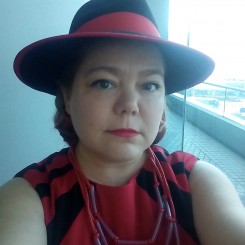by Lisa Movius
Gallery Weekend Kuala Lumpur
15-17 November 2019
Malaysia rarely makes global headlines, and neither does its art, but the Southeast Asian nation has a new optimism that is spilling into its culture after the first ever successful opposition win and transfer of power in the 35-year history of the ostensible democracy in May 2018. The diverse Nusantaran home of some 30 million people is frequently overshadowed by its immediate neighbors: size and vibrancy gives fellow Muslim majority nation Indonesia a spotlight, while the small and orderly fellow former British colony Singapore has tighter cultural and economic ties with the West.
The breadth of Malaysia’s small but energetic art scene took center stage last November for the fourth edition of Gallery Weekend Kuala Lumpur. Organised by collector and art advisor Shalini Ganendra, the nonprofit GWKL aims to raise Malaysia’s cultural profile through a particular focus on expanding local art audiences. With its Luminaries programme, a roster of six to eight visiting Asia-Pacific art professionals convene for an intensive tour of art venues in the Malaysian capital, and join panels with local artists and curators.
Its 2019 participants included senior curator of Singapore’s National Gallery Adele Tan, deputy director of curatorial programmes at Singapore’s NTU Centre for Contemporary Art Karin Oen, indigenous Taiwanese independent curator Biung Ismahasn, and Aga Khan Museum curator Marika Sardar. This year saw the expansion of Malaysian panelists to 25% of the total, including Islamic Art Museum Malaysia’s head of curatorial affairs Heba Nayel Barakat, textile historian Edric Ong and artist Ahmad Fuad Osman. “The response this year is the strongest so far, and the organic growth was evident in the very full Luminary sessions, filled tours and increased gallery traffic,” says Ganendra.
“GWKL is a cultural platform providing an immersive introduction to quality culture in Kuala Lumpur,” says Ganendra. She lists its immediate goals as “facilitating engagement between public and culture through enjoyable, accessible and free programming” – with no charges for audiences or participant galleries and institutions, which this year included galleries Suma Orientalis, Taksu and Ganendra’s SG Advisory and Residence Gallery and nonprofits Rumah Lukis, the Sekeping Collection and Badan Warisan Heritage Society. Also, it “connects experts, both local and global, for the development of transnational engagement [while] growing cultural tourism to Malaysia.”
Last year’s dramatic elections saw the upset win of side-switching former prime minister Mahathir Mohamad, now 94, over entrenched religious populist Najib Razak. Najib was subsequently detained for corruption charges including his role in the 1MDB embezzlement scandal. The corruption crackdown has taken a toll on art sales; of its four art auctioneers Edge Galerie has folded, and KL Lifestyle, Masterpiece Malaysia and Henry Butcher are reportedly struggling. Butcher organises local fair Art Expo, running 13 years. “An expected market correction is happening now,” Ganendra says. “The new government has been supportive of culture in principle, supporting independent efforts through endorsement and promotion.”
“There are not many changes since the new government, as [art] has always been a ground up initiative. But there are more activities for a few years now, as there are more active galleries,” says Richard Koh, who represents Southeast Asian artists through his eponymous gallery opened in Kuala Lumpur in 2005 and now with locations in Singapore and Bangkok. “The local auctions have slowed down like most markets, but dealers here are not as badly hit as it’s still a pretty small market.” He describes it as “still inward and mainly local” with a handful of established collectors buying regionally or globally. “We do have some pretty good and interesting artists and they are slowly getting the exposure they deserve,” such as sculptural weaver Anne Samat, who in 2019 had shows in Taiwan, South Korea, Norway, New York and Bangkok.
With the new government, Ganendra says, “there is a sense of a more responsible and open censorship policy, with more confidence in the expression of ideas. [It's] a more confident government.” Earlier incidents of censorship included the removal of a work titled Under Construction, by collaborating collectives Pusat Sekitar Seni and Population Project from Malaysia and Indonesia, ostensibly for Communist content, during the inaugural Kuala Lumpur Biennale in 2017. A second edition of the biennale, at the state-run National Visual Art Gallery, is in the works for 2020.

